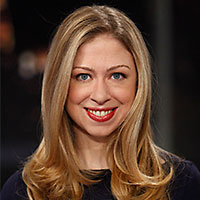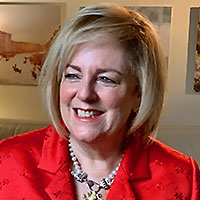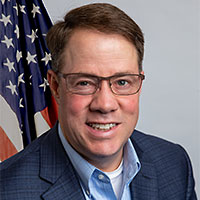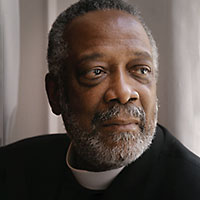Bridging Faith and Science to Combat the Overdose Crisis Series
Fourth in a Series | May 4, 2022
- 1619 to 2019
- America’s Opioid Epidemic
- Bridging Faith and Science to Combat the Overdose Crisis
-
COVID-19 Events
- Back To School 2020
- COVID-19 and Kids: Impacts, Uncertainties, and the Role of Vaccines
- Coronavirus Webcast
- How to Get Reopening Right
- Inside Taiwan’s Response to COVID-19
- Preserving the Scientific Integrity of Getting to COVID-19 Vaccines: From Clinical Trials to Public Allocation
- Rethinking the U.S. COVID-19 Response
- The Path to Reversing Troubling Trends
- We Stand With Public Health
- Webcast With Johns Hopkins Experts
- What the American Rescue Plan Means for Public Health
- Dean’s Symposium on Ebola
- From Science to Story
- Give It Your Best Shot: Reaching the Vaccine-Hesitant Young
- Measles Rises Again
- Preprints and Peer Review in a Pandemic
- Summit on Reducing Gun Violence in America
- Surviving Trauma
- The Vulnerability of Health Care in Conflict: Ukraine and Beyond
- Professorship Dedication Ceremonies
Faith leaders provide critical support for individuals, families, and communities impacted by substance use disorders, and they are ideally positioned to raise awareness and prompt action. Faith leaders can use their unique and powerful platform to shatter the stigma that all too often keeps addiction in the shadows and blocks access to supportive resources. However, their contribution, and untapped promise, as a means to address harms arising from substance use disorders has often been overlooked.
President Bill Clinton has been convening leaders from across the faith and science communities to take action on the overdose crisis. This work is more important than ever before. Based on recent data, overdose deaths are expected to surpass the 1 million mark since the Centers for Disease Control and Prevention (CDC) began measuring them in 1999. And, according to CDC data released last summer, more than 100,000 individuals died from a drug overdose in the United States during the 12-month period ending in April 2021, the most of any year on record.
Through a partnership with the Clinton Foundation, Johns Hopkins Bloomberg School of Public Health, and The Centre for Responsible Leadership, national leaders from science and faith are convening to explore the promise of a collaborative relationship, to reduce stigma about addiction, educate about prevention, treatment, and recovery and advance policies and programs that save lives.
Faith and Science Leaders Met on Wednesday, May 4
A convening hosted by Chelsea Clinton held on Tuesday, May 4, 1-2 p.m. EDT, focused on how the faith and science communities can work together to promote harm reduction strategies and ideas, address substance use disorders and reverse a dangerous trend of increasing overdose deaths. The conversation was moderated by Tom Coderre, Acting Deputy Assistant Secretary for Mental Health and Substance Use and featured Dr. Susan Sherman, Professor in the Department of Health, Behavior, and Society at the Johns Hopkins Bloomberg School of Public Health and The Reverend Edwin C. Sanders, Senior Servant and Founder of Metropolitan Interdenominational Church. (established in 1981) in Nashville, Tennessee.
Past faith and science leaders participating in these convenings include Dr. Chinazo Cunningham, Commissioner of New York State Office of Addiction Services and Supports; Rabbi Arthur Schnier, Senior Rabbi, New York City’s Park East Synagogue Founder and President, Appeal of Conscience Foundation; Patrick Kennedy, Lead Author of the Mental Health Parity and Addiction Equity Act and Founder of the Kennedy Forum; Sister Simone Campbell, a Roman Catholic Sister of Social Service, religious leader, attorney, and author with extensive experience in public policy and advocacy for systemic change; Dr. Sanjay Gupta, CNN Chief Medical Correspondent; Bishop Vashti McKenzie, African Methodist Episcopal Church; Dr. David Satcher, 16th Surgeon General of the United States; Founder and Senior Adviser, Satcher Health Leadership Institute at the Morehouse School of Medicine; Dr. Nora D. Volkow, Director of the National Institute on Drug Abuse at the National Institutes of Health; Dr. Leana Wen, emergency physician, public health professor at George Washington University, and nonresident senior fellow at the Brookings Institution.
Speakers
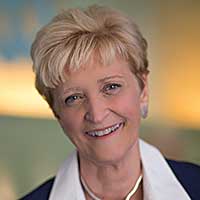
Ellen J. MacKenzie
Dean, Bloomberg Distinguished Professor, Bloomberg School of Public Health
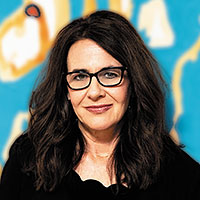
Susan Sherman
Professor in the Department of Health, Behavior, and Society, Bloomberg School of Public Health
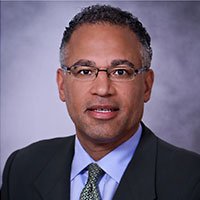
Chris Thrasher, M.A., CSC
Managing Director, Substance Use Disorders and Recovery, Clinton Global Initiative
Past Events
Learn more about the previous events in the series.
Subscribe!
Sign up to be notified about future events on this topic.

